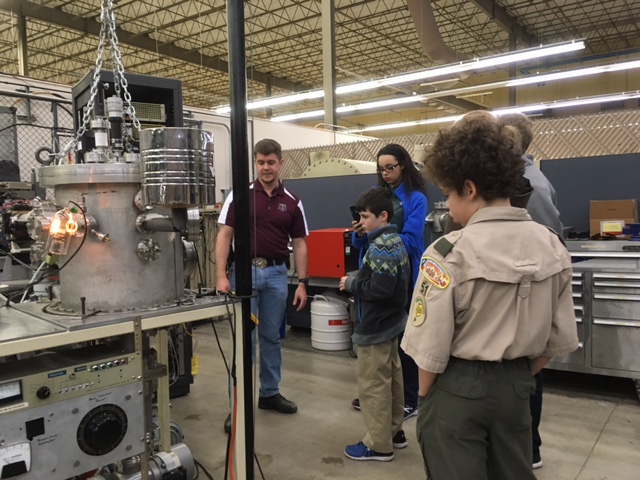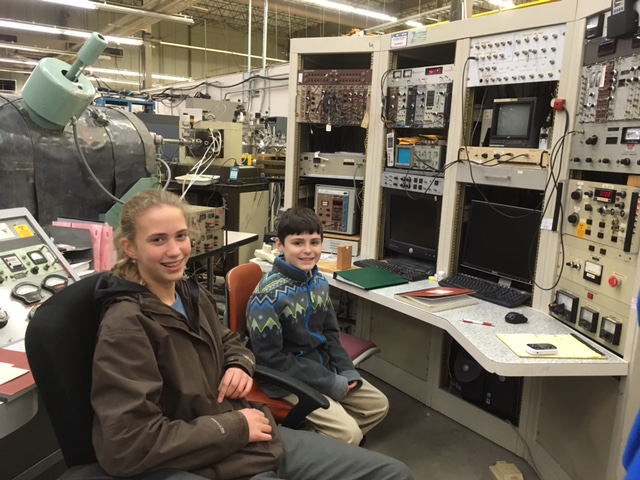
Youth from the Boys Scouts of America (BSA) are used to exploring the wilds of nature and going on adventures, but the Texas A&M University student section of the American Nuclear Society (ANS) is helping them discover a whole new kind of adventure with the nuclear science merit badge workshop. The ANS student section hosted the Scouts early in February and provided facility tours, guided instruction and hands-on activities to help them understand the basics of nuclear science and earn the nuclear science merit badge.
“ANS's primary goal is the promotion and outreach of nuclear science and engineering to the general public,” said Andrew Foster, external committee chair for the ANS student section at Texas A&M. “We want to interface with the public and dispel some of the myths regarding nuclear technology, and providing this to the BSA is an excellent way to do that.”
The program hosts Scouts twice a year, in the fall and spring, with nearly 30 attending each workshop. The Scouts and their parents are shown facilities operated by the Department of Nuclear Engineering and listen to lectures, take exams and incorporate hands-on activities toward the completion of the merit badge. The goal is to have the Scouts complete all the requirements for the merit badge before the end of the one-day workshop. Taking their lead from the merit badge curriculum, much of the material is delivered in formats that are easily digestible to the Scouts.
“If you look at the bulk of the student population at our university that are taking nuclear engineering, it is challenging for them as young adults in their twenties,” Foster said. “So the idea of what we want to teach these early teens is much smaller than the scope of that. We work in analogies, like if the nucleus of an atom is a baseball, then the electrons can be found somewhere around the distance of the bases, helping them understand, in very basic concepts, what is going on.”

The workshop also features instruction on the basics of nuclear radiation, nuclear power and jobs that exist within the nuclear industry. One of the benefits of the workshop, according to Foster, is that it encourages the Scouts to develop a desire for continual learning.
“I think a lot of times the big things we see out of this workshop is that depending on the socio-economic status of the kids that come, college is not always an option,” Foster said. “For them to come out and see the facilities and the science, some of these kids start to become interested in the idea of pursuing college. That is always great to see.”
While the workshop helps both the BSA provide merit badges to Scouts and promotes the ANS mission of increasing public nuclear literacy, one of the secondary goals of the workshop is dedicated to creating engineers that will impact the future.
“At the end of the day, the questions they ask and the interest they show makes it worth it,” Foster said. “The big idea is that if we can take some of the fear of nuclear power away and dispel those myths, we can show them how good this can be. If we can get these kids into the right mindset, maybe one of those kids will design the next great space reactor or small modular reactor, who knows?”